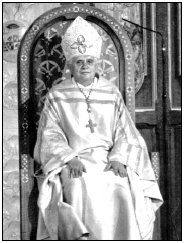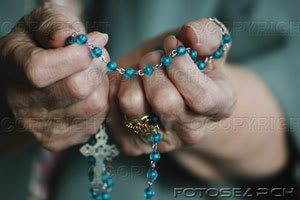


Part One.......................Part Two......................Part Two continued.
Freedom of speech relates to blogs. This is my contribution to exercise this elemental right of U.S. Citizens.
"Let's Roll!" U-S-A...U-S-A...U-S-A!!!
DISCLAIMER: Thoughts expressed in my blog, unless otherwise noted, are my own. The presence of links or articles written by others should not be construed as an endorsement of or agreement with everything that author has ever written, said, or thought. For information concerning standard disclaimers look here.
COMPUTER TRESPASS---RCW 9A.52.110---Computer trespass in the first degree.
(1) A person is guilty of computer trespass in the first degree if the person, without authorization, intentionally gains access to a computer system or electronic database of another; and (a) The access is made with the intent to commit another crime; or (b) The violation involves a computer or database maintained by a government agency.
(2) Computer trespass in the first degree is a class C felony.

Sign by Danasoft - For Backgrounds and Layouts


Dear Legislator,
If you are not reading the following blog regularly, may I recommend this to you and to your legislative colleagues?
http://regimechangeiran.blogspot.com/
We all must remain educated on the subject of Islam so that we are not blind-sided by false accusations of "islamophobia" (which is merely a smoke screen to hide the real intent).
Thank you,


I was reminded of all this (reasonability to raise the question of God through the use of reason, and to do so in the context of the tradition of the Christian faith) recently, when I read the edition by professor Theodore Khoury (Muenster) of part of the dialogue carried on -- perhaps in 1391 in the winter barracks near Ankara -- by the erudite Byzantine emperor Manuel II Paleologus and an educated Persian on the subject of Christianity and Islam, and the truth of both.
It was probably the emperor himself who set down this dialogue, during the siege of Constantinople between 1394 and 1402; and this would explain why his arguments are given in greater detail than the responses of the learned Persian. The dialogue ranges widely over the structures of faith contained in the Bible and in the Koran, and deals especially with the image of God and of man, while necessarily returning repeatedly to the relationship of the "three Laws": the Old Testament, the New Testament and the Koran.
In this lecture I would like to discuss only one point -- itself rather marginal to the dialogue itself -- which, in the context of the issue of "faith and reason," I found interesting and which can serve as the starting point for my reflections on this issue.
In the seventh conversation ("diálesis" -- controversy) edited by professor Khoury, the emperor touches on the theme of the jihad (holy war). The emperor must have known that sura 2:256 reads: "There is no compulsion in religion." It is one of the suras of the early period, when Mohammed was still powerless and under [threat]. But naturally the emperor also knew the instructions, developed later and recorded in the Koran, concerning holy war.
Without descending to details, such as the difference in treatment accorded to those who have the "Book" and the "infidels," he turns to his interlocutor somewhat brusquely with the central question on the relationship between religion and violence in general, in these words: "Show me just what Mohammed brought that was new, and there you will find things only evil and inhuman, such as his command to spread by the sword the faith he preached."
The emperor goes on to explain in detail the reasons why spreading the faith through violence is something unreasonable. Violence is incompatible with the nature of God and the nature of the soul. "God is not pleased by blood, and not acting reasonably ("syn logo") is contrary to God's nature. Faith is born of the soul, not the body. Whoever would lead someone to faith needs the ability to speak well and to reason properly, without violence and threats.... To convince a reasonable soul, one does not need a strong arm, or weapons of any kind, or any other means of threatening a person with death...."
The decisive statement in this argument against violent conversion is this: Not to act in accordance with reason is contrary to God's nature. The editor, Theodore Khoury, observes: For the emperor, as a Byzantine shaped by Greek philosophy, this statement is self-evident. But for Muslim teaching, God is absolutely transcendent. His will is not bound up with any of our categories, even that of rationality. Here Khoury quotes a work of the noted French Islamist R. Arnaldez, who points out that Ibn Hazn went so far as to state that God is not bound even by his own word, and that nothing would oblige him to reveal the truth to us. Were it God's will, we would even have to practice idolatry.
As far as understanding of God and thus the concrete practice of religion is concerned, we find ourselves faced with a dilemma which nowadays challenges us directly. Is the conviction that acting unreasonably contradicts God's nature merely a Greek idea, or is it always and intrinsically true?
In all honesty, one must observe that in the late Middle Ages we find trends in theology which would sunder this synthesis between the Greek spirit and the Christian spirit. In contrast with the so-called intellectualism of Augustine and Thomas, there arose with Duns Scotus a voluntarism which ultimately led to the claim that we can only know God's "voluntas ordinata." Beyond this is the realm of God's freedom, in virtue of which he could have done the opposite of everything he has actually done.
This gives rise to positions which clearly approach those of Ibn Hazn and might even lead to the image of a capricious God, who is not even bound to truth and goodness. God's transcendence and otherness are so exalted that our reason, our sense of the true and good, are no longer an authentic mirror of God, whose deepest possibilities remain eternally unattainable and hidden behind his actual decisions.
As opposed to this, the faith of the Church has always insisted that between God and us, between his eternal Creator Spirit and our created reason there exists a real analogy, in which unlikeness remains infinitely greater than likeness, yet not to the point of abolishing analogy and its language (cf. Lateran IV).
God does not become more divine when we push him away from us in a sheer, impenetrable voluntarism; rather, the truly divine God is the God who has revealed himself as logos and, as logos, has acted and continues to act lovingly on our behalf. Certainly, love "transcends" knowledge and is thereby capable of perceiving more than thought alone (cf. Ephesians 3:19); nonetheless it continues to be love of the God who is logos. Consequently, Christian worship is "logic latreÃa" -- worship in harmony with the eternal Word and with our reason (cf. Romans 12:1).
A reason which is deaf to the divine and which relegates religion into the realm of subcultures is incapable of entering into the dialogue of cultures.
"Not to act reasonably (with logos) is contrary to the nature of God," said Manuel II, according to his Christian understanding of God, in response to his Persian interlocutor. It is to this great logos, to this breadth of reason, that we invite our partners in the dialogue of cultures. To rediscover it constantly is the great task of the university.

The Democrats threatened ABC/Disney over "The Path to 9/11" - but what's so extraordinary that legislators in the federal government would use their power so...cravenly? Apparently, the truth hurts.

Read the article by Anne Casselman in DISCOVER Vol. 27 No. 09 | September 2006 | Environment

I've had other 'moments' but I've chosen these at this time to define me.
1- I'm a mother and a grandmother.
2- I lost my grandparents, moving me up one rung on the forebear ladder from 'grandchild' to 'parent.'
3- Becoming a Catholic is indescribable: it was the culmination of my spiritual search for "place."
4- Having FMS has been a challenge. I was able to hold the disability at bay with vitamin supplements, but it finally wore me down and I am on prescriptions which allow me to function more or less 'normally' (depending on your definition of 'normal' of course).
5- The day JFK was shot, I was a freshman at Auburn University in Auburn, Alabama. On my way back to my dorm (the old "Auburn Hall" which is now apartments), someone walked past me and told me JFK had been shot. Now, I was a Goldwater Girl, but I knew enough to say "don't joke about such things" not knowing that it wasn't just 'idle talk' but reality. I remember standing in the doorway to the dorm room of the only girl in Auburn Hall with a television set (black and white) and watching the replay of the event. It was not something I assimilated easily. We don't (the USA doesn't) kill its Presidents, we just vote them out of office (at least every 8 years if not every 4). But JFK was shot and killed. And for what? Did the USA go into a hidey-hole? No, we are (the USA is) too diverse to do that. We get up and continue to live our lives.
6- On September 11, 2001, I had a dental appointment in a town south of where I live and was on the highway driving there when the terrorists used our own airplanes to strike a blow at the USA. I arrived and was ushered into the area where the staff and dentist were watching the replays. I was the only patient they'd not been able to contact to change my dentist appointment. We talked and then I got my teeth cleaned and we watched more news. My comment was "This is the USA, this doesn't happen in the USA!" Well, of course, it did. We know the hows and whys now, five years later. The 9/11 Commission Report is being made into a docudrama by ABC News and Disney (edited due to threats by the Democrat Party who do not like to see the truth show up on everyone's television screens) this Sept 10 and 11. The 5 hour docudrama is reportedly taken directly from the 9/11 Commission Report.
7- Crockett was run over at 12:15 AM on 09/03/05. His death was devastating to me. The only parallel is the death of both grandmothers. My one grandmother decided she was going to die and two weeks later she did. She was my anchor to my genealogy. The other grandmother's death cost me my "grandchild" status. I was a traumatized zombie for two weeks after that. But with Crockie, I've never quite gotten over his untimely death. Partly out of guilt for not leashing him, partly out of anger that the truck (pulling a double wheeled open trailer) could have slowed, honked, and missed him. Instead the driver hit him, got him caught in the double wheels of the trailer, zig-zagged along the road to release his trapped body, and turned off his running lights so that no one could read his tag number. He sped up once the body was left lying in the middle of the roadway. It was dark, I didn't even think that the "thud" I heard was Crockett's death, and it took me 10 to 15 minutes to locate his body. Crockett "always" went to the back yard. He had been beside me and then when I took something from the car into the house, I noticed he was gone. I never for once thought that he'd crossed the highway (he'd never done that before). Now, I'm fairly sure that he had seen deer eating fruit in the yard and they'd run across the street instead of back into the woods behind my house as they usually did. He followed and was prancing back home when he was hit.
 (The date on the photo is not correct.)
(The date on the photo is not correct.)


"We love death. The United States loves life. That is the big difference between us." – Osama bin Laden
"I have been made victorious through terror." Muhammad, founder of Muhammadism now called Islam (Submit or Die)



The Didache ( also referred to as The Teachings of the Twelve Apostles ) , the oldest extant manual of church order, dating from the late first or early second century states: "You shall not kill the embryo by abortion and shall not cause the newborn to perish." The bishops at the Second Vatican Council declared that, as Catholics, we believe what the Church authoritatively teaches on matters of faith and morals, for to hear the voice of the Church on those matters is to hear the voice of Christ himself. ( Lumen Gentium, No. 25; Mysterium Ecclesiae, No. 2 ) Catholics believe that the Holy Spirit guides the Church and protects it from error. We believe that the Roman Pontiff, Pope Francis, is the successor of Peter, the Rock on whom Jesus Christ has built his Church, and is not just another man who is entitled to his opinions on faith. We believe that we are called to trust the Spirit to guide the Church, so we do not pick and choose among her teachings.
